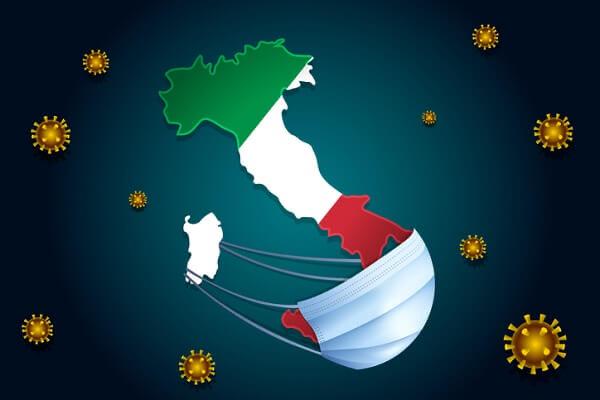In order to deal with the Coronavirus emergency, the Italian government has adopted many proceedings, in particular with the Legislative Decree 18/2020 issued at 17/03/2020. The articles cited below refer to the aforementioned decree.
In the next paragraphs we will try to show some of these provisions, with the necessary premise that is a short list of a wide, complex, and trust me, in many cases very difficult framework to apply.
DIRECT TAXES
Allowance of 600 euros for the month of March
It’s recognized a cash contribution of 600 euros, for the month of March 2020, for certain categories of subjects, within predefined spending limits.
Employee award in March 2020
Article 63 provides for the recognition of a prize of 100 euros to employees, private and public, who continued to work at the workplace in March 2020 despite the Coronavirus emergency. Employees who have worked on the go may also benefit from the concession, while “smart workers” are excluded.
Tax credit for sanitation costs in the workplace
To encourage the sanitation of the workplace, art. 64 introduces a tax credit for entrepreneurs and professionals, for the tax period 2020, to the extent of 50% of the costs of sanitizing the rooms and work tools up to a maximum amount of 20,000 euros. However, the tax credit is recognized up to a maximum of 50 million euros for the year 2020.
Tax credit for shops
Article 65 recognizes subjects carrying out business activities a tax credit of 60% of the amount of the rent for the month of March 2020, limited to properties cadastral category C/1.
Tax credit for advertising investments
Article. 98 provides, for 2020, an extraordinary regime for the advertising investment bonus pursuant to art. 57-bis of Legislative Decree 50/2017. In particular, the credit is granted in the single measure of 30% of the value of the investments made.
Tax credit for newsstands
Article. 98 introduced some changes to the tax credit regulations for newsstands.
DTA tax credit
Article. 55 allows the transformation into tax credit of the DTAs relating to tax losses and capital surpluses in favor of companies that sale non-performing loans.
Liberal payments – Deduction or deduction
Article. 66 provides facilities for liberal donations made to finance the interventions to contain the epidemiological emergency COVID-19, with a distinct regime according to whether the disbursements are made by non-entrepreneurial subjects, that is entrepreneurs.
Natural persons and non-commercial entities
For natural persons and non-commercial entities, a 30% gross tax deduction (IRPEF or IRES) is due for: liberal payments in cash and in kind carried out in the year 2020 in favor of the State, Regions, local territorial bodies, public bodies or institutions and legally recognized non-profit foundations and associations. The deduction, by express provision of the law, cannot exceed 30,000 euros.
LABOR LAW
The Government also intervened on aspects that have directly affected workers and the management of employment relationships.
The most significant are the following:
Measures to limit displacements
Throughout the national territory, as a result of the DPCM 22.3.2020, it is forbidden for all people to move or move, by public or private means of transport, to a different municipality than the one in which they are currently located, except that:
- for proven work needs;
- for needs of absolute urgency;
- for health reasons.
Within the same municipality, the movements must be justified by proven work needs or situations of necessity or health reasons.
Decree “cure Italy”
The law decree 17.3.2020 n. 18 (the so-called “cure Italy” decree), containing measures to strengthen the national health service and economic support for families, workers and businesses connected to the epidemiological emergency from COVID-19, contains many provisions, some of which are indicated in the paragraphs below:
Special leave or babysitting bonus (art. 23 of Legislative Decree 18/2020)
In favor of parents employed in the private sector, of those registered in the separate section of Social Security (INPS) and of self-employed workers registered, special parental leave is envisaged or, alternatively, the payment of a bonus paid by means of a family booklet for the purchase of babysitting services.
VAT (IVA in Italy)
Legislative Decree 18/2020 has suspended certain terms relating to the payment of VAT and the fulfillment of the obligations envisaged for this tax.
Suspension of VAT obligations
Article. 62 co. 1 and 6 of Legislative Decree 18/2020 has established, for those who have their tax domicile, their registered office or operational headquarters in the territory of the State, the suspension of tax obligations (except for payments and making withholding taxes at source and withheld) that expire in the period between 8.3.2020 and 31.5.2020.
The fulfilments may be carried out by 30.6.2020, without penalties.
Suspension of the deadlines for submitting the declaration of succession
Among tax obligations other than payments suspended by art. 62 co. 1 of Legislative Decree 18/2020 if expiring between 8.3.2020 and 31.5.2020, the declaration of succession also falls, as confirmed by the Italian Tax Authority.
Considering that the deadline for submitting the declaration of succession is, in principle, 12 months from the date of death, they are suspended, in principle, the deadlines for submitting succession declarations concerning deaths between 8 March 2019 and 31 May 2019. These declarations can be submitted by 30 June 2020 without penalties.
Suspension of the terms for the registration of documents
The terms for the registration of contracts are suspended, if they expire between 8.3.2020 and 31.5.2020, both where the fulfillment must be operated by the private taxpayer, and where it must be operated by the notary or other public officials; the suspension of the terms for registration operates both for the documents to be registered electronically and for the documents to be registered in paper form; the suspension of the deadlines for registration also entails the postponement of the deadline for the payment of the registration tax resulting from it, given that the obligation to pay arises only as a result of the registration and this rule also works for contracts registered electronically, such as lease agreements; the registration tax remains due without suspensions for years subsequent to the first registration; where, despite the suspension, the taxpayer proceeds to register the contract, the related taxes remain due.
Suspended fulfilments are carried out by 30.6.2020 without penalties.
TAX CHECKS AND PENALTIES
The control, liquidation and collection activities of the offices of the tax authorities are suspended from 8.3.2020 to 31.5.2020, as well as tax obligations (example, VAT return).
There is no general suspension of the payment terms deriving from taxation deeds. This suspension works only for certain types of deeds, such as executive assessment notices and payment cards.
As a result of art. 83 of Legislative Decree 17.3.2020 n. 18, the hearings are postponed ex officio after 15.4.2020, and the procedural terms are suspended from 9.3.2020 to 15.4.2020. These provisions, as enshrined in co. 21, apply, insofar as they are compatible, also to tax commissions. Instead, for the offices of the tax authorities, the suspension is greater, from 8.3.2020 to 31.5.2020. The mechanism of application of the suspension, both for taxpayers and for the tax authorities, seems similar to that of the working suspension of the procedural terms, from 1.8 to 31.8 of each year pursuant to art. 1 of Law 742/69.
STATE GUARANTEE ON LOANS FROM BANKS
State guarantees on loans issued by banks may be requested until 31 December 2020 and will be available for any type of company regardless of size, sector of activity and legal form with the following requirements:
- headquarters in Italy with the destination of the loans requested from Italian factories;
- companies that were not in difficulty as of 31 December 2019 but which have faced or found themselves in a difficult situation after the Covid-19 epidemic;
- companies that cannot have further access to Central Guarantee Fund.
In this way, companies will be able to obtain liquidity guaranteeing continuity in their operations.
This short list does not contain all the measures issued. Abaco is available for further information and checks.





